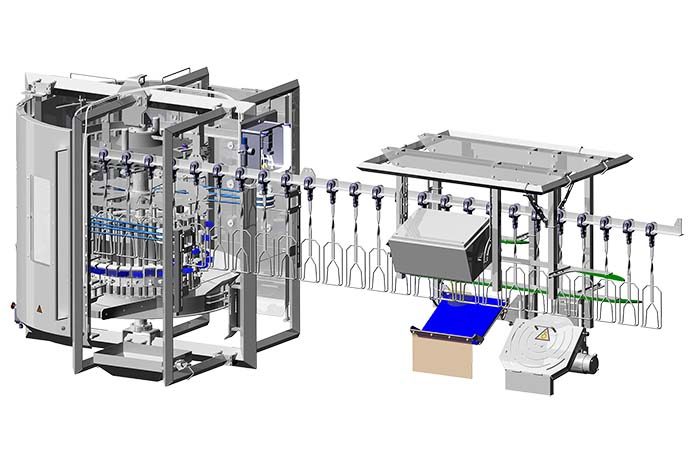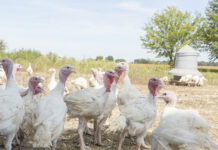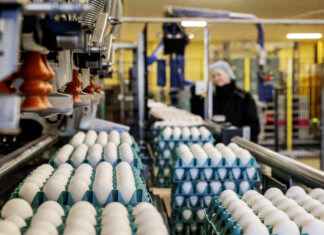
The Meyn Footpad Inspection System provides a fully automatic feet selection process complete with camera and product sensing equipment, and now complemented by the new Selective Hock Ejector. It automatically directs different quality grades of hocks into the correct processing lines.
Demand for faster production speeds is making it more and more difficult for operators to perform at the speeds required. Variations in grading and data logging also arise, as a result of different interpretation of the grading guidelines. In order to address these issues, Meyn has developed a system for automatic feet selection: an automated Meyn Selective Hock Ejector system. It has been designed to operate at line speeds up to 13,500 bph and maximizes yield by ejecting individual hocks (right or left, or both).
Meyn already offers a solution for footpad grading in the form of the Footpad Inspection System (FIS). The FIS is now supplied with the new hock positioning disc as standard. The hock positioning disc has been added to improve the number of hocks that can be captured by the camera system.
The new Selective Hock Ejector allows customers to automatically inspect, grade and divert products that minimize the labor cost and maximize the profitability of feet processing. Using information detected in the FIS, it can select, per foot or hock, which products should be ejected and directed into specific processing lines. This allows for non-human consumption products to be separated automatically from human consumption at the touch of a button.
In addition to that, the Selective Hock Ejector can be linked to a product sensor located after the veterinarian inspection platform in evisceration. If a product is removed by the veterinarian, the corresponding hocks can also be removed from the line and eliminated from a human consumption processing stream. This creates a closed loop system to guarantee product quality for the retailers.
The system collects information on footpad lesions per flock, in compliance with the latest animal welfare legislation.

















